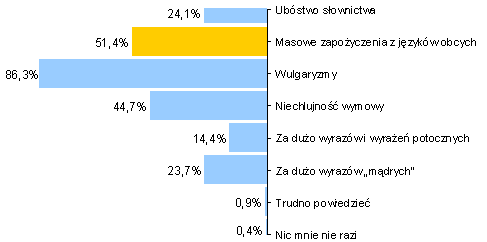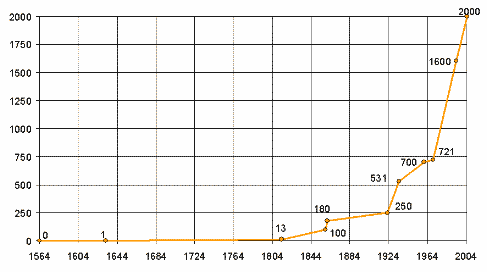What are you like, modern Polish?
static.unilang.org/babelbabble/index.php?n=20&t=8#up
The question being the title of this article was uttered by one of the greatest modern Polish linguists, Professor J. Miodek, during one of his lectures. According to the Professor, the influences of foreign languages constitute the largest danger to the Polish language, and the most dangerous is English.
Chart 1. What annoys you most in the modern Polish, used in public?
(A public opinion poll conducted by the CBOS)
Chart 2. The number of English loanwords in Polish in the course of time.
static.unilang.org/babelbabble/index.php?n=20&t=8#up
The question being the title of this article was uttered by one of the greatest modern Polish linguists, Professor J. Miodek, during one of his lectures. According to the Professor, the influences of foreign languages constitute the largest danger to the Polish language, and the most dangerous is English.
Chart 1. What annoys you most in the modern Polish, used in public?
(A public opinion poll conducted by the CBOS)
Chart 2. The number of English loanwords in Polish in the course of time.

Chart 1
Chart 2
 PolishForums LIVE / Archives [3]
PolishForums LIVE / Archives [3]